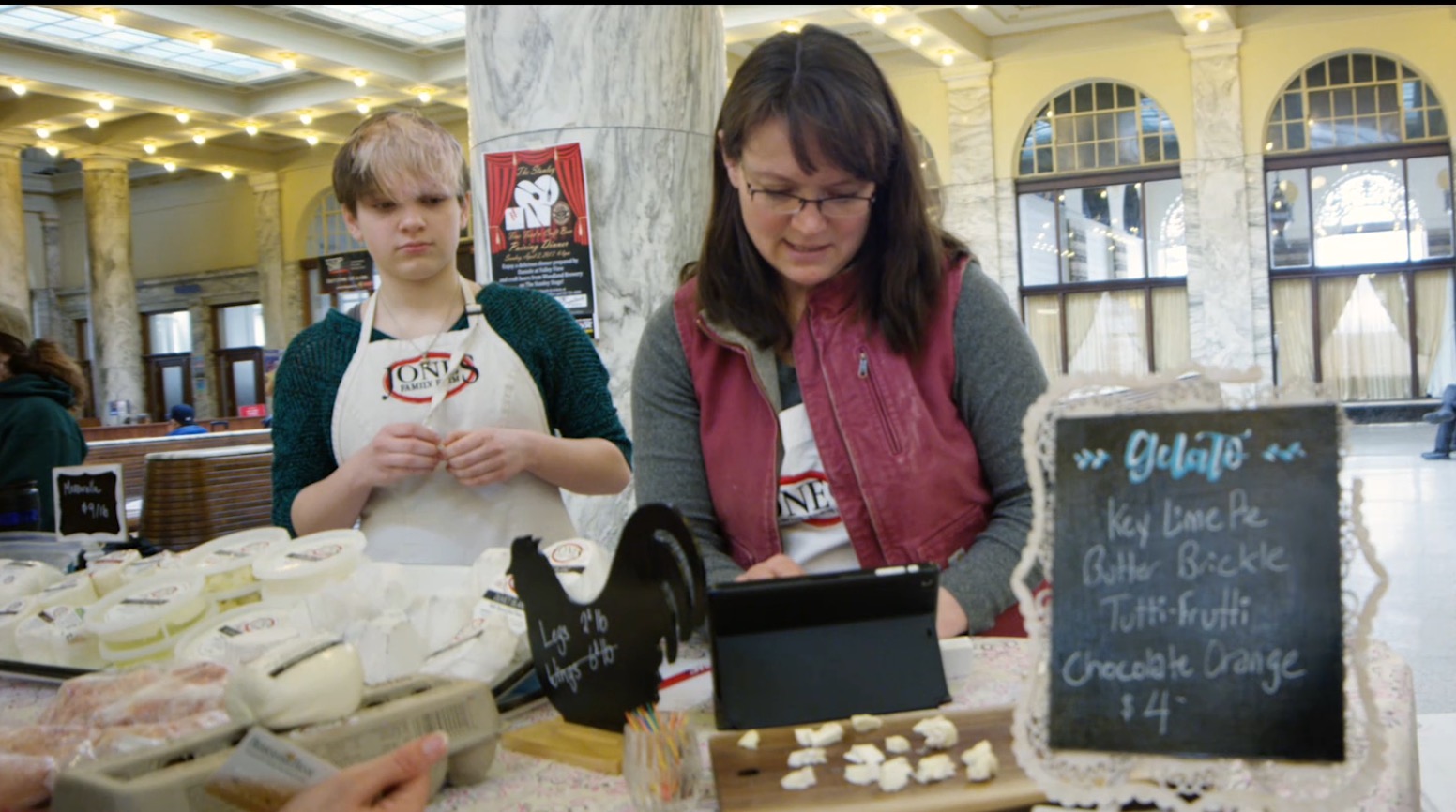I was recently invited to speak at a Career Exploration Day event at West Canada Valley Junior High School. Seventh and eighth graders were able to meet an engineer, a photographer, a firefighter, and a farmer (me!)
My youngest daughter, Margaret, is in the 7th grade. Thinking about a future career is perhaps one of the farthest things from her mind. The choices ahead of her are virtually limitless, not to mention hard to predict. How do you prepare for a job that may not even exist today? But, I suppose it does make sense for kids of this age range to start thinking about what the future may hold. The classes they choose, the extracurricular activities they join, even the volunteer opportunities they take on in the next few years will—at least in part—help define their paths in life.
To be honest, I had the hardest time organizing my thoughts for the presentation. What would the students want to know? They may want to hear about a “typical” day on the farm… but is there such a thing? They most likely would want to know how many hours I worked and whether the pay was good. (Oh, boy, they wouldn’t like my answer to that!)
I began to wonder if it was my job to “sell” the idea of a career in farming. I decided that certainly wasn’t the case. My job was simply to tell the kids what I like about my job, to be honest about its negative aspects, and perhaps entertain them with cute baby goat pictures along the way.
I began by telling the kids that I liked wearing lots of different hats. Being a farmer means having lots of different skills! I like being my own boss, I like working outside, and I like working with animals. I especially like working with my family and having my daughters intimately involved in the business. I also told them how much I like being a value-added farmer, selling directly to the consumer, getting immediate feedback and an occasional “thank-you.” (No matter what the job, it is always little things like thank-you’s that make all the difference.)
I finished by telling the kids that one of the things I liked most about farming was the fact that I was learning something new almost every day. As students in middle school, I was sure they didn’t appreciate how exciting learning new things can be for an adult, but I assured them it was really important.
Luckily, the kids were ready with questions, too. Many wanted to know what sort of an education they would need to become a farmer. I could reference some extraordinarily good programs at Cornell, Morrisville and Cobleskill. But did I go to school to become a farmer? No, my major was in Spanish.
Oops, I felt my presentation going off the rails! How could I be giving a presentation on a farming career when I didn’t even have the educational background? I found myself telling the students how important it was to keep their options open through education—my first piece of advice. Was I using my college degree on a daily basis? No, my first job out of college was as a translator. But that job led to another, and another, and another. Working for other people, in lots of different industries, eventually convinced me to strike out on my own and start a farm in Central New York. There was literally no way for me to have predicted what opportunities would present themselves along my path in life. Being intellectually curious and pursuing every topic that caught my interest—whether through formal learning or self-taught—has kept my options open.
And that lead to my second piece of advice for the kids: Embrace change. I’ve lost track of the number of jobs I’ve had over the last 30+ years. Some I left for a promotion, others because I saw no future there. But each change represented growth and an opportunity to learn. Changing jobs can be a little scary, but it can be exciting, too!
In fact, if these kids want to be farmers, they REALLY have to embrace change. I asked how many, by show of hands, lived on a farm or were related to a farmer. A few hands shot up. I then told the students that it wasn’t all that long ago that most of the hands in the classroom would have gone up. Now, it’s less than 2% of the population that grows food for the rest of us. While that only elicited one “wow” from the unimpressed teens, I hope it got the point across: We live in a rapidly changing world and even one of the seemingly most traditional career choices—farmer—is not immune. In many ways, farming today is very different than it was 50 years ago and it will look very different in the future.
Maybe that’s why I like being a farmer? From the daily routine, to the weather, to a future full of possibilities—farming is all about change…and learning to keep up with it!
